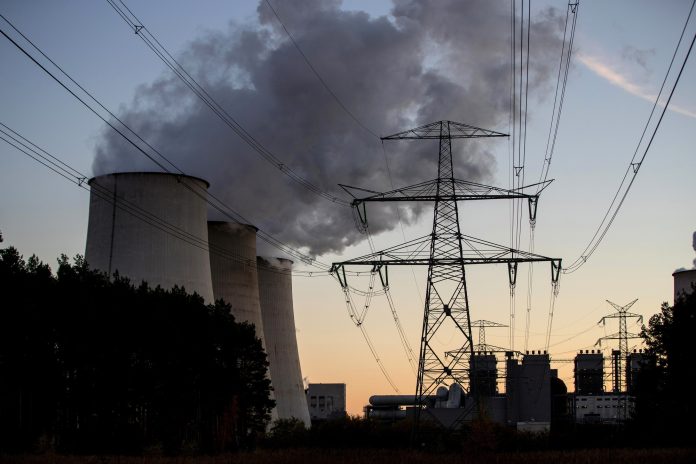European lawmakers argued over the future of the Green Deal in a parliamentary debate on Wednesday, keeping their eyes on the EU elections in June, Euractiv reports.
In the last session of the European Parliament before Europeans head to the polls from 6 to 9 June, outgoing lawmakers debated the present and insecure future of the Green Deal.
The current Commission’s flagship policy, which combines environmental and climate protection measures, has come under sustained attack from centre-right parties in recent months.
Several signed documents, such as the Nature Restoration Act, have been blocked or withdrawn, and the next five-year EU cycle is expected to shift from environmental issues to economic concerns and competitiveness. Dutchman Bas Eickhout, co-lead candidate for the Greens, who had put the debate on the agenda for Wednesday, said:
Let’s make these elections the Green Deal elections.
In 2019, “this house said we support the Green Deal,” Eickhout said, attacking the right wing of the hemicycle for “weakening, pressuring and watering down legislation” on the nature restoration law, deforestation rules, pesticides, packaging waste, and EVs.
The European People’s Party (EPP), the Parliament’s biggest group, fired back: “The EPP stands behind the Green Deal,” said Peter Liese, a lawmaker from Germany.
Liese, who led negotiations on the EU’s emissions trading scheme (ETS) – a key climate document – and fought for its extension to road transport and buildings, said left-wing parties had “rejected” the legislation from the start.
Lidia Pereira, a Portuguese EPP lawmaker, explained that “the far-left, on the 11th hour of this mandate, is trying to correct its excesses”, while other parties were “lumping everything together to the effect that if you don’t go along with their views, you are retrograde, and you will be destroying the environment”.
The second largest party, the centre-left S&D, cited the “the flooding of La Roche” and the forest fire in Limburg, both in Belgium, as evidence that the Green Deal is as important as ever. Mohammed Chahim, an S&D lawmaker from the Netherlands:
The right can try to do anything: they want to get rid of climate initiatives, but they’re not helping anybody.
Tiemo Wölken from Germany’s SPD stressed that his group’s goal remained to “link social affordability and climate change.” The €87 billion Social Climate Fund, designed to soften the blow of the EU’s carbon price, is “unfortunately being totally ignored,” he added.
Pascal Canfin from the centrist Renew, the third-biggest party, said Parliament should “be very proud of the work we’ve done on the Green Deal.” The French lawmaker, who chaired the environment committee, will not be running for re-election.
His group had “voted with the right on nuclear” and genetically modified crops, and with the left on “nature-based solutions,” he recounted. Canfin also added:
We need all of these solutions. We need to be pragmatic and ambitious and not dogmatic about this.
He suggested that the right had forgotten that “it’s not the Green Deal that’s going to be the reverse of growth, it is climate change that will ruin our agricultural sovereignty”.
For Beata Szydło, a Polish lawmaker from the nationalist European Conservatives and Reformers (ECR), the culprit is clear:
People can’t pay their bills, people see no future, because of the Green Deal, and we will see this in the elections. The green ideology, which you’ve tried to ram down the throats of Europeans, doesn’t give Europe a future.
Protection of the environment and climate, she stressed, “should not be at the expense of European security or European industry”.
The far-right group Identity & Democracy went even further. Sylvia Sardone, an Italian lawmaker for the ID group, claimed:
We have been financing Europe’s decline.
She said the Green Deal means that “we have to discontinue investment in everything which renders us independent, making us more dependent on China” by importing electric vehicles, solar panels and heat pumps.
The “Green Deal has been a significant achievement for Europe,” said Silvia Moding on behalf of the far-left group. “Despite its defects,” it made the EU’s “economy grow in a sustainable fashion,” she added.
Instead of backing down, the “lamentable” fact of climate change required doubling down, she suggested. Moding noted that “we need a Green Deal number two for the next mandate.”
